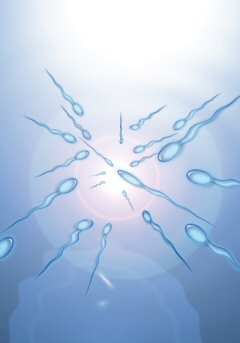 Research presented at the annual conference of the European Society of Human Genetics shows that a surprisingly high 4 percent of assisted reproductive technology (ART) babies suffer congenital malformations, and that the problem is much more common in boys.
Research presented at the annual conference of the European Society of Human Genetics shows that a surprisingly high 4 percent of assisted reproductive technology (ART) babies suffer congenital malformations, and that the problem is much more common in boys. Conducted by Dr. G�raldine Viot, of the Maternit� Port Royal hospital in Paris, the survey included data from approximately one-third of the clinics registered to perform ART procedures in France. All ART births from these clinics from 2003 to 2007 were included (15,162 children in total). The study is the largest to date on ART and birth defects.
"We found a major congenital malformation in 4.24 percent of the children, compared with the 2-3 percent that we had expected from previous published studies," said Dr. Viot. "This higher rate was due in part to an excess of heart diseases and malformations of the uro-genital system. This was much more common in boys."
The origins of the malformations were probably multiple, says Dr. Viot. "We need more research in order to understand the relationship between embryo culture media, timing of embryo transfer, the effects of ovarian stimulation, the use of ICSI, where sperm is injected directly into the egg, freezing of gametes and embryos and these disorders. A malformation rate of this magnitude is a public health issue."
Dr. Viot and colleagues intend to follow up their work analyzing a further 4000 questionnaires, from children born in 2008, and to find out the origin of parental infertility for each child born. "By following all these children we hope to understand more about not only what can go wrong after ART, but why it goes wrong," she explained. "At a time when infertility is increasing and more and more couples need to use ART to conceive, it is vitally important that we find out as much as we can about what is causing malformations in these children, not only so that we can try to counteract the problem but also in order for health services to be able to plan for their future needs."
Related:
Frozen Or Fresh, Sperm Viability Not Affected
Older Men's Sperm Often Damaged
Fertility And The Older Man
Malformations Of Penis, Testicular Problems Linked To Pesticides, Plasticizers
Source: European Society of Human Genetics

